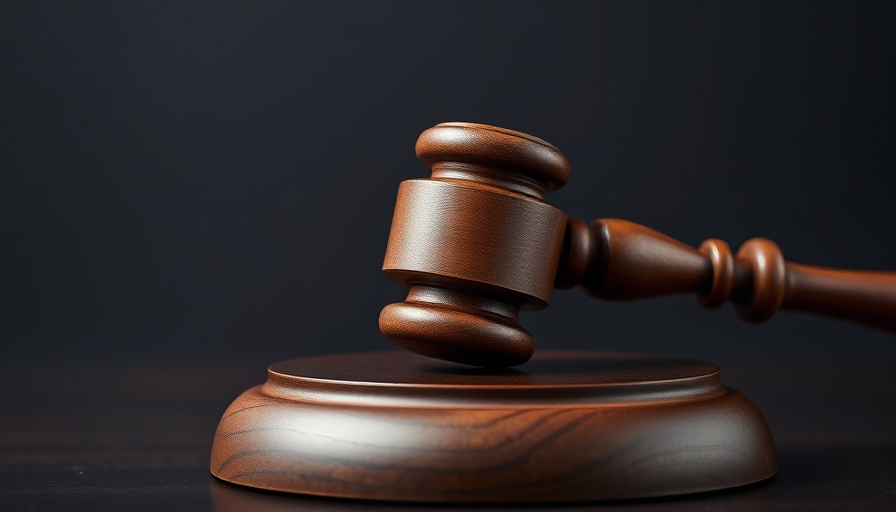
Legal Proceedings and the Implications of Evidence Withdrawal
The Thohoyandou High Court in Limpopo recently made a pivotal decision in the ongoing murder trial of Livhuwani Madadzhe—the postmortem report and the J88 form have been provisionally withdrawn as evidence. This move, as stated by Judge Thogomelani Tshidada, comes in light of the need to further evaluate witness testimonies and expert evidence before solidifying the case against Madadzhe, accused of murdering his partner, Lindelani Nengovhela, two years prior.
A Closer Look at the Case
Madadzhe's trial has garnered significant media attention, as Nengovhela's body was discovered in distressing circumstances—floating in a disused pit toilet at their home in Sidou, Mangondi. During the trial, the investigating officer, Hulisani Nemulalate, was called to testify regarding the condition of the crime scene and the state of the deceased's body. However, discrepancies in his statements raised concerns, leading to mandates for his recall. These inconsistencies have underscored the fragility of the state’s evidence narrative.
The Weight of Evidence in Legal Trials
Advocate Ntsako Hlungwane, representing Madadzhe, interpreted the withdrawal of the postmortem report as indicative of a weak prosecution case, suggesting that the state's witnesses failed to deliver credible and cohesive testimonies. This raises important questions about the reliability of forensic evidence in legal frameworks, particularly in high-profile cases where public scrutiny is intense.
Strategic Judicial Decisions: A Path to Justice?
Judge Tshidada's decision also highlights a strategic legal approach—visiting the crime scene in a measured effort to gain clarity and context surrounding the evidence presented. Such actions reflect a broader judicial trend of ensuring transparency and diligence in the pursuit of justice. This case could serve as a template for future legal proceedings addressing serious crimes, reflecting a commitment to thorough investigative practices.
Comparative Case Studies: What Can We Learn?
Cases marked by evidentiary withdrawals often parallel significant judicial challenges around the globe. For instance, in many jurisdictions, the reliance on improperly handled evidence has prompted systemic changes in how police and judicial entities operate. A comparative analysis of such cases could offer valuable insights into improving procedural standards in South Africa's judicial landscape, particularly concerning police investigations and forensic ethics.
Impacts of Public Perception on Judicial Outcomes
The media's portrayal of the Madadzhe trial undoubtedly shapes public perception, potentially influencing the opinions of jurors in future trials. In South Africa, trust in the legal system remains critical. How the public perceives this case, characterized by a prominent media personality, could steer significant interactions between legal authorities and community sentiments—drawing parallels with high-profile cases that have sparked national debates on judicial fairness and transparency.
A Forward-Looking Perspective: The Crux of Legal Reform
As South Africa grapples with systemic issues in crime, corruption, and governance, the implications of this trial echo broader societal themes of accountability and justice reform. Engaging in conversations about judiciary standards—particularly regarding forensic evidence handling—could pave the way for policy updates that reinforce the integrity of the legal system. In the pursuit of a fair trial, learning from these proceedings can galvanize discussions across the legal community and beyond, ultimately contributing to a more robust justice system.
Your Role in the Discourse
It is essential for professionals engaged in law, criminology, and social justice to take an interest in the unfolding dynamics of high-profile cases like Madadzhe’s. Part of a concerted effort to advocate for effective legal accountability and reform is staying informed, involved, and articulate in public discussions surrounding judicial practices. As the trial progresses, consider engaging with community forums or professional gatherings to discuss how these cases not only reflect current socio-legal dilemmas but also shape the future of our judicial standards.
 Add Row
Add Row  Add
Add 




Write A Comment